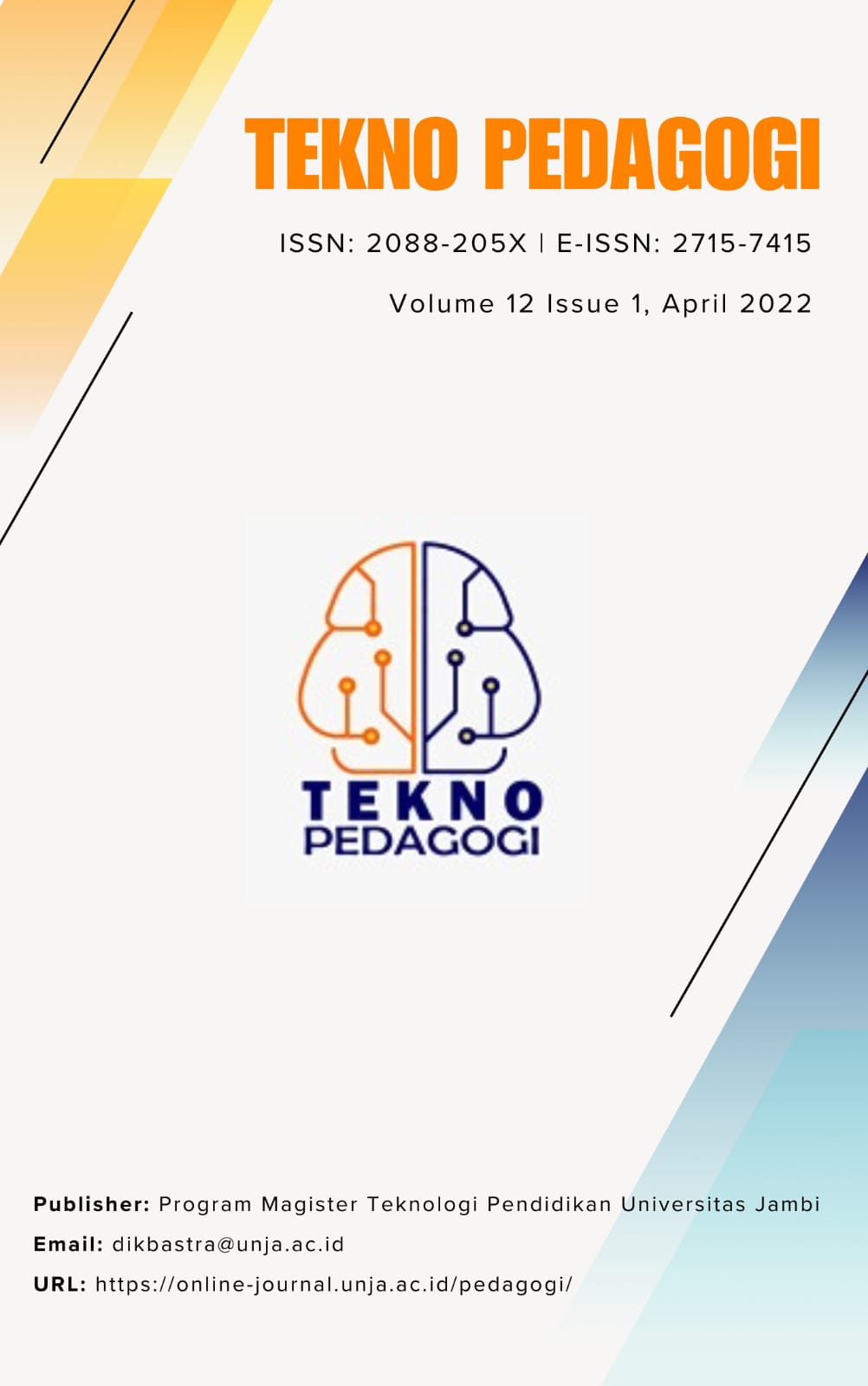Fun Learning by Applying Competition and Cooperation Strategies Through Mathematical Games
DOI:
https://doi.org/10.22437/teknopedagogi.v12i1.32509Keywords:
competition, cooperation, joyful learning, math gamesAbstract
The aim of this research is to create a joyful learning environment through a competitive and cooperative activities by using mathematics games. The subject of this research is elementary school the fourth grade students. The research conducted in the Edu-Fun Learning Centre in Talang bakung, Jambi. This is Classroom Action Research (CAR). The instrument used is observation and video recording of learning activities. The qualitative data analyzed by employing the Miles and Huberman (1994).The research was conduct for three cycles. The result showed that 1) the use of games in learning mathematics created a fun and interestingly learning, 2) grouping students randomly based on academic ability to effectively train students mutually learn and work together to get better grades, 3) competition in learning activities trained students to be sportive, learning to posed ideas, and confident to answer teacher’s questions, 4) students response in learning activities affects students achievement, 5) competitiveness does not affect students learning achievement directly but able to make students actively involved in learning activity, 6) the cognitive, affective and physicomotoric achievement based on students response, the classroom teaching process, competitive character, and students active involvement in learning activities.
Downloads
References
Anghileri, Julia. 2006. Children Mathematical Thinking in the Primary Years. British : Library Cataloguing
Hubberman, AM dan Miles, MB. 1994. Qualitative Data Analysis, Second Edition. USA : Sage Publication
Johnson.1991. Competitive Learning. http://ehlt.flinders.edu.au/education/DLiT/2002/environs/scott/complern.htm
Kilpatrick,J dan Swafford, J. 2002. Helping Children Learn Mathematics. Washington DC : National Research Council
Koshy, Valsa. 2005. Action Research for Improving Practice. London : Paul Chapman Publishing
McNiff, Jean., Whitehead, Jack. 2002. Action Research Principles and Practise Second Edition. London : Routledge
Mills, E. Geoffrey. 2003. Action Research: a Guide for the Teacher Researcher, second Edition. New Jersey : Pearson Education.
Nicholls, Gill. 2005. An Introducing to teaching : a Handbook for Primary and Secondary School Teacher second edition. London : Taylor and Francis e-library.
Panitz. 1996. Colaborative Learning. http://ehlt.flinders.edu.au/education/DLiT/2002environs/scott/collearn.htm
Santrock. W. John. 2009. Psikologi Pendidikan edisi kedua. Dallas : University of texas
Wiersema, Nico. 2000. How does Collaborative Learning actually work in a classroom and how do students react to it? A Brief Reflection.
Downloads
Published
How to Cite
Issue
Section
License
Copyright (c) 2022 Sundari Sundari, Anis Hertuti

This work is licensed under a Creative Commons Attribution 4.0 International License.





